Are you feeling uncertain about a recent medical diagnosis or treatment plan? Seeking a second opinion can provide clarity and peace of mind, ensuring you make informed decisions about your health. In our latest article, we'll guide you through crafting an effective letter for requesting a medical second opinion, taking the guesswork out of the process. Join us as we explore essential tips to advocate for your health and well-being!

Patient Information
Patients seeking a second opinion on medical diagnoses often include essential details that provide clarity and context. Patient information typically encompasses personal identification details (full name, date of birth), medical history (previous diagnoses, treatments received), ongoing medications (names, dosages), and specific concerns or symptoms (duration, severity). Additional data might involve diagnostic test results (MRI, blood tests), referring physician information (name, contact details), and any relevant family medical history (genetic predispositions). This thorough compilation aids consulting specialists in understanding the case fully, ensuring informed recommendations for the patient's health decisions.
Reason for Request
Patients frequently seek a second opinion for various reasons, including uncertain diagnoses and treatment options. A common reason for requesting a second opinion is the complexity of conditions such as cancer, where expert evaluations can significantly influence prognosis and treatment pathways. Patients may also experience a lack of confidence in the initial healthcare provider's recommendations, prompting a thorough exploration of alternative therapies. Geographic relocation often necessitates a new evaluation of previously diagnosed conditions, while the desire for reassurance regarding major surgical procedures can lead patients to consult specialists in renowned medical centers, like Johns Hopkins Hospital. Furthermore, patients may seek validation of prescribed medications, especially in instances of chronic illnesses like diabetes or hypertension, where multiple treatment regimens are prevalent in different communities. Ultimately, obtaining a second opinion empowers patients, enhances their knowledge, and ensures they make informed decisions about their health.
Medical History Details
A medical second opinion is often sought for complex health issues, especially in cases such as cancer diagnosis or surgical interventions. Accurate medical history details, including precise dates of diagnosis, types of treatments undergone (chemotherapy, radiation therapy), and results of any diagnostic tests (biopsies, MRIs), are crucial for the consulting physician. Additionally, notes on previous medications (dosages, durations) and any adverse reactions encountered (allergies, side effects) provide valuable insights. A comprehensive overview of family medical history, particularly hereditary conditions (heart disease, diabetes), can also aid in understanding potential risks. The location of the medical facility where initial treatments were received, such as Johns Hopkins Hospital or Cleveland Clinic, may influence referral decisions. Ensuring the completeness of this information can support an informed and accurate second opinion process.
Specific Questions or Concerns
A medical second opinion request often arises when patients seek clarity on their health conditions. Patients may have specific questions, such as the accuracy of diagnostic tests like MRI or CT scans, typically performed in hospitals such as Johns Hopkins or the Mayo Clinic. Concerns about treatment plans and potential side effects of medications, particularly for chronic diseases like diabetes or cancer, arise frequently. Patients might inquire about alternative therapies or trials, especially in renowned research institutes like the National Institutes of Health (NIH) or cancer centers like MD Anderson. Understanding the prognosis based on the latest clinical guidelines from sources like the American Cancer Society can also be critical for patients. Thus, articulating clear questions about their diagnosis, treatment options, and expected outcomes can facilitate a more informed conversation during the second opinion process.
Contact Information
For individuals seeking a medical second opinion, clear contact information is essential. Include full name of the patient, date of birth for identification, and a complete address, which often includes street name, city, state, and zip code for any necessary correspondence. Phone numbers should be listed as both home and mobile, ensuring multiple ways for healthcare professionals to reach out. Email contact is also crucial for prompt digital communication and document sharing. Lastly, include the name of the referring physician, along with their contact details, establishing a direct link for further information and collaboration regarding the patient's medical history and current treatment plan.
Letter Template For Medical Second Opinion Request Samples
Letter template of medical second opinion inquiry for insurance approval
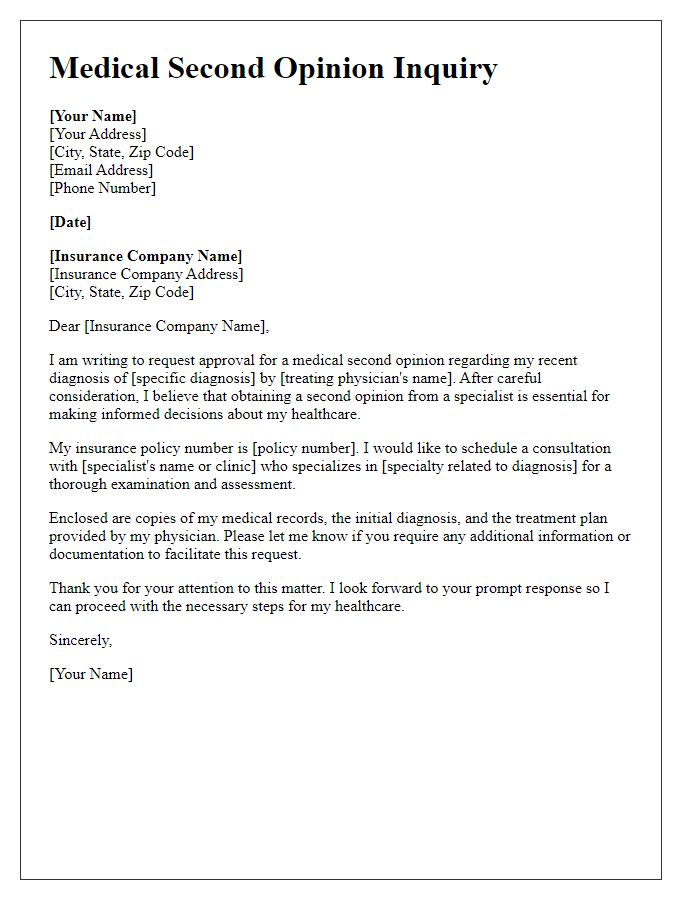

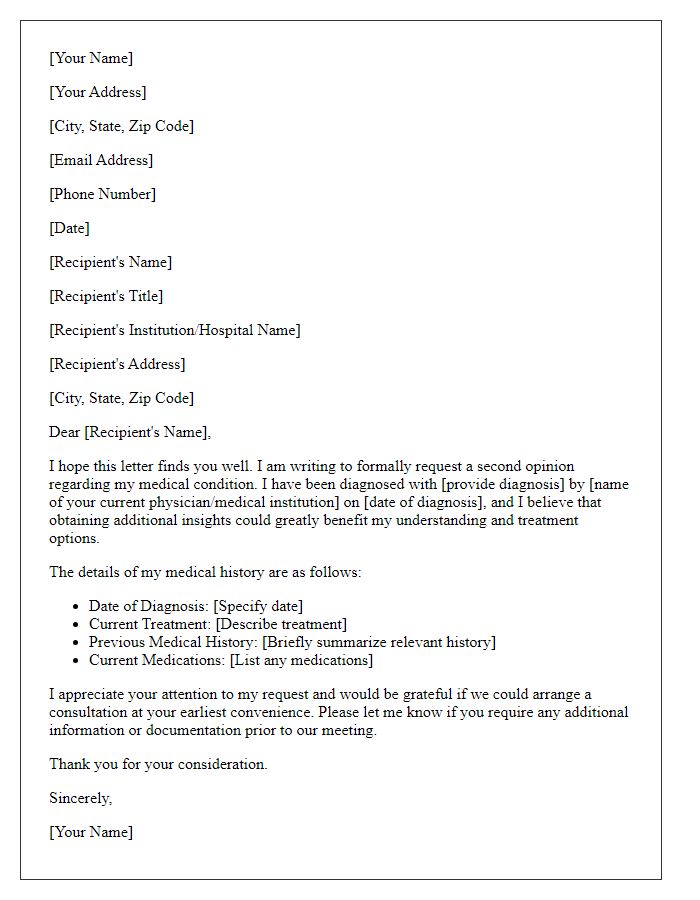
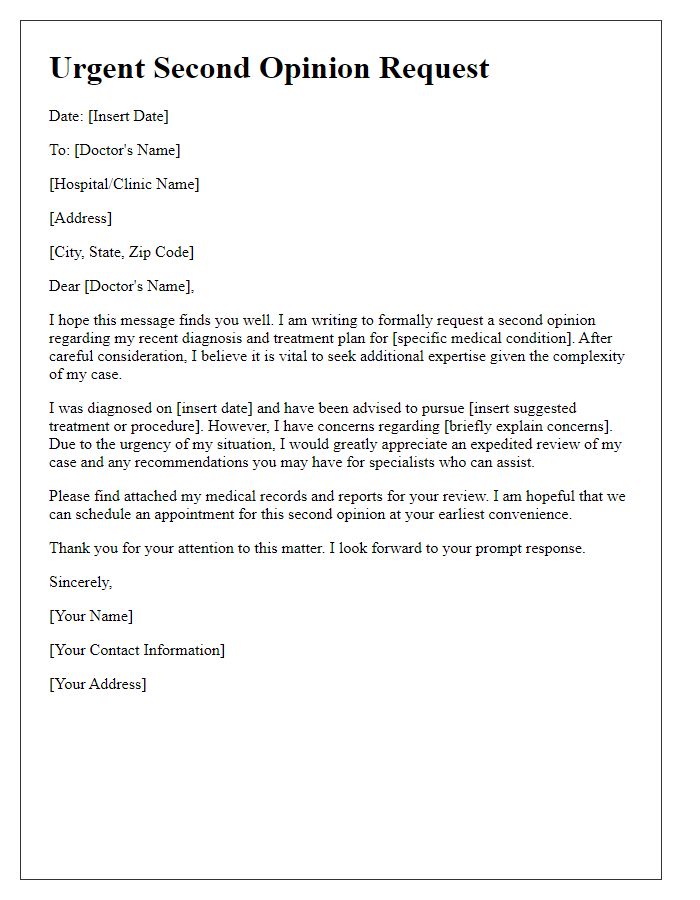
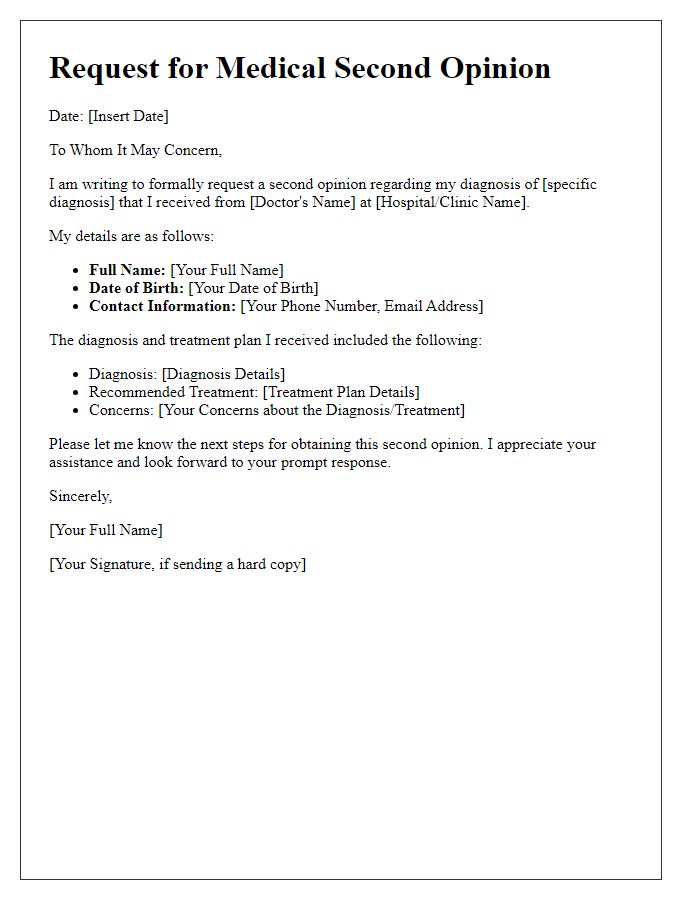
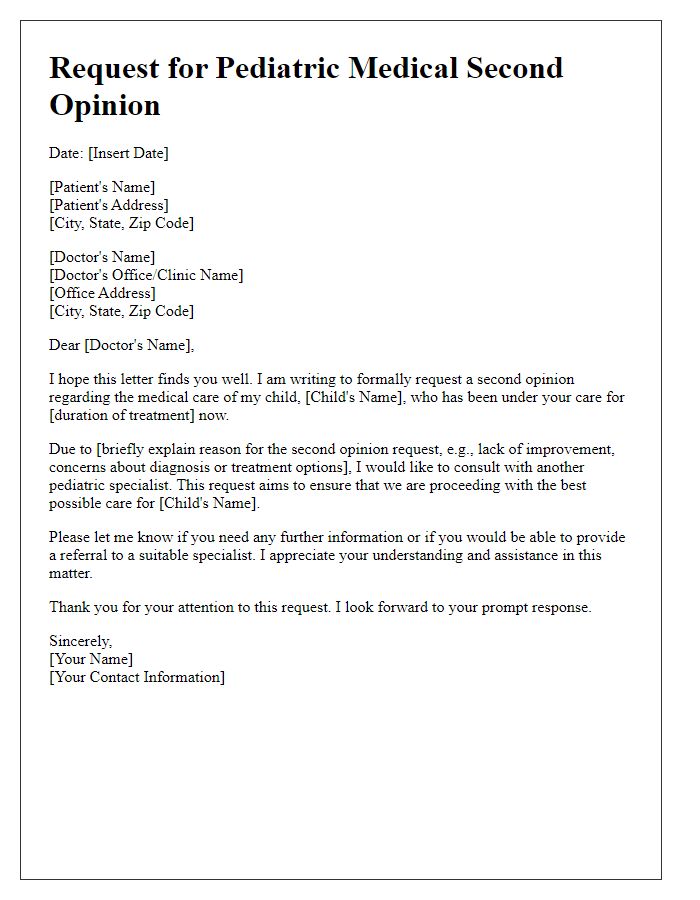
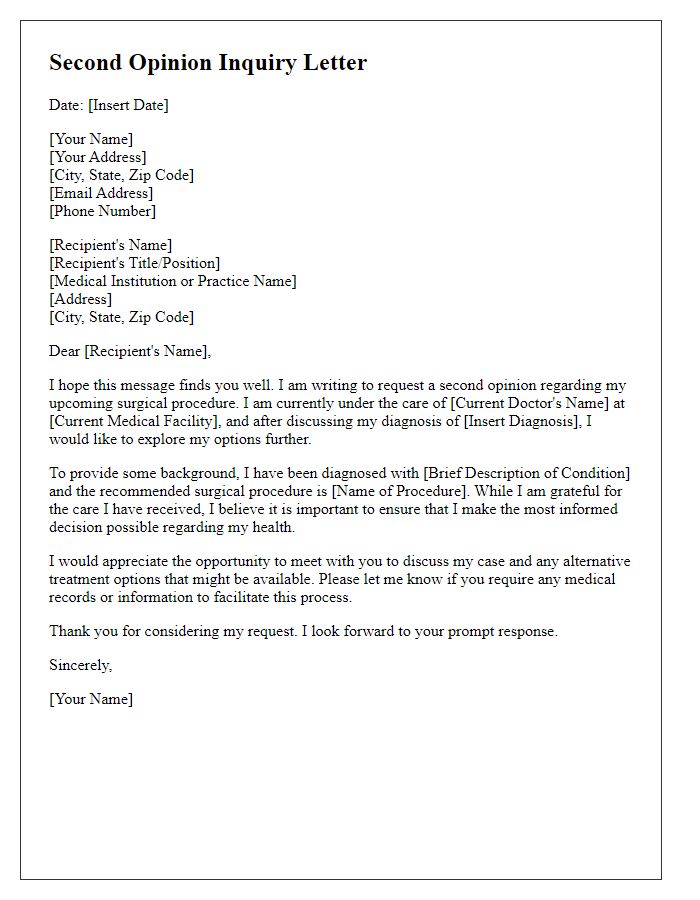
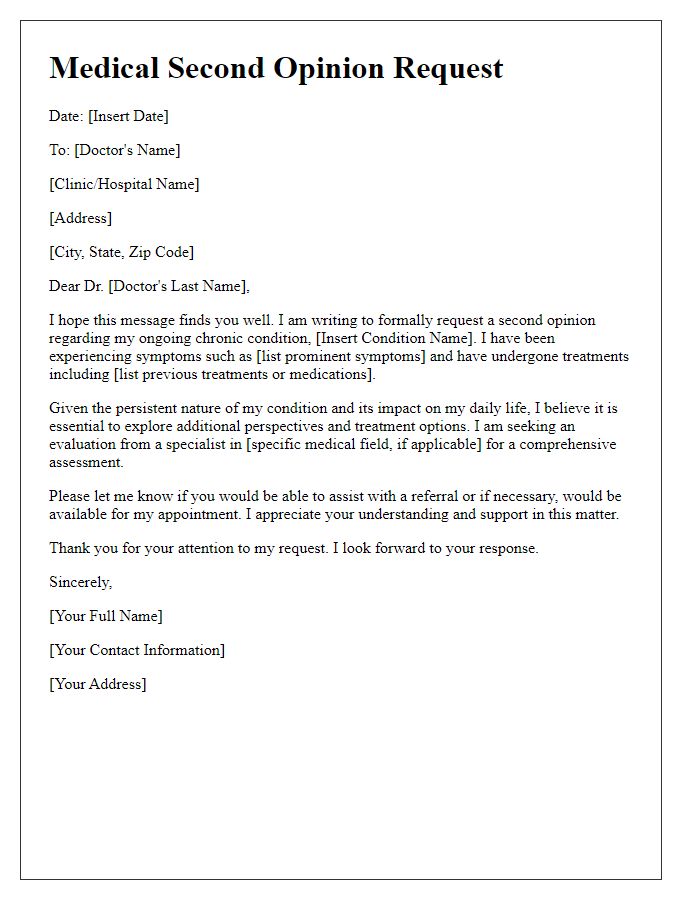
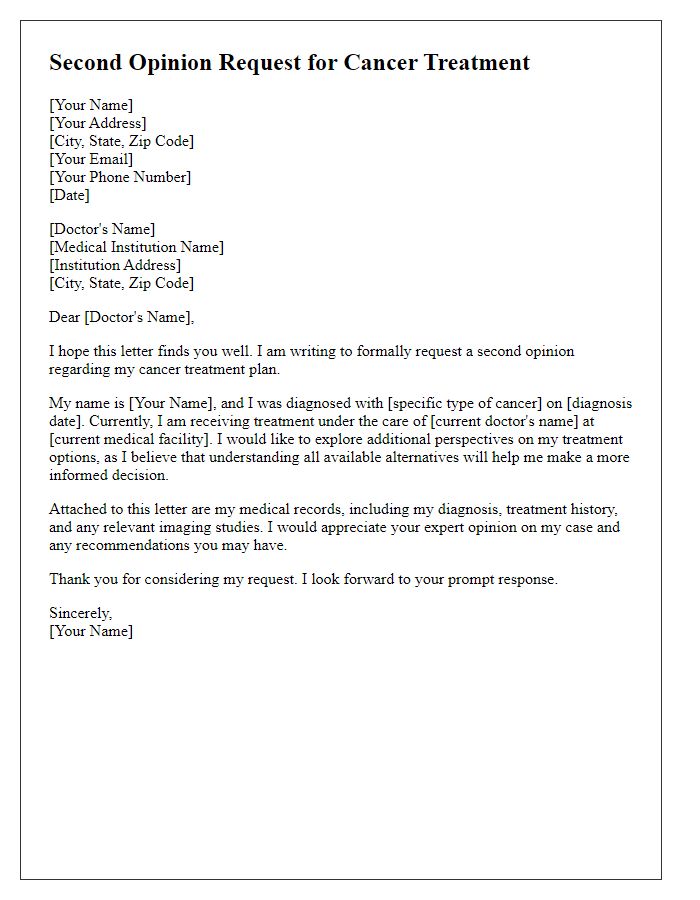
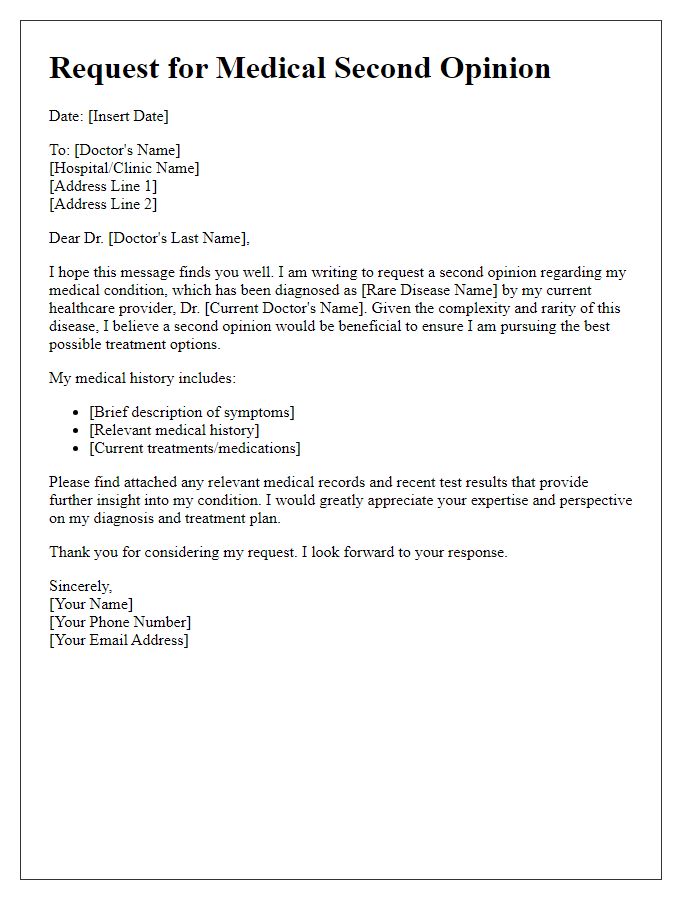
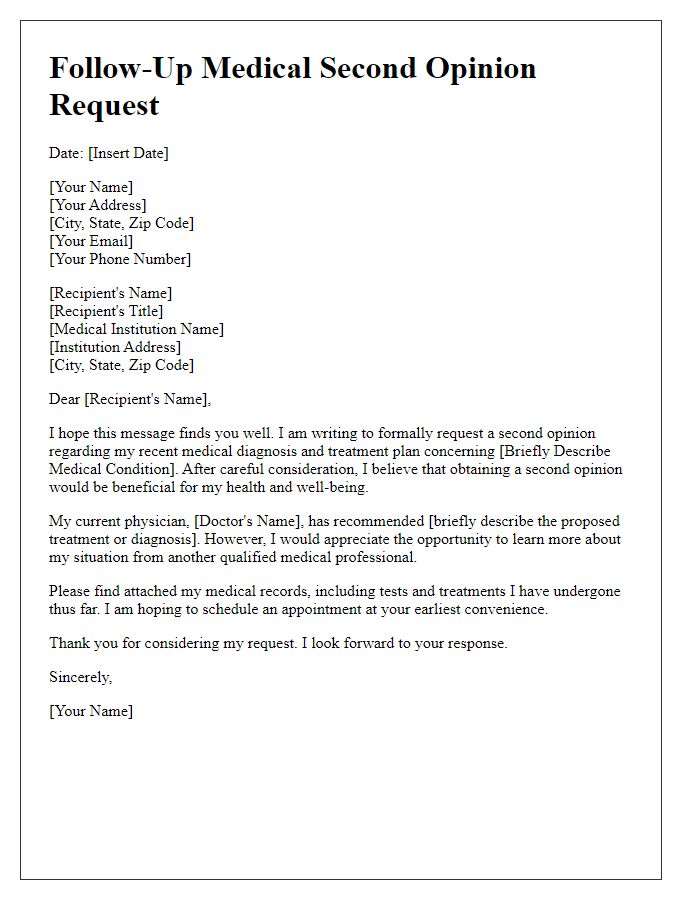


Comments